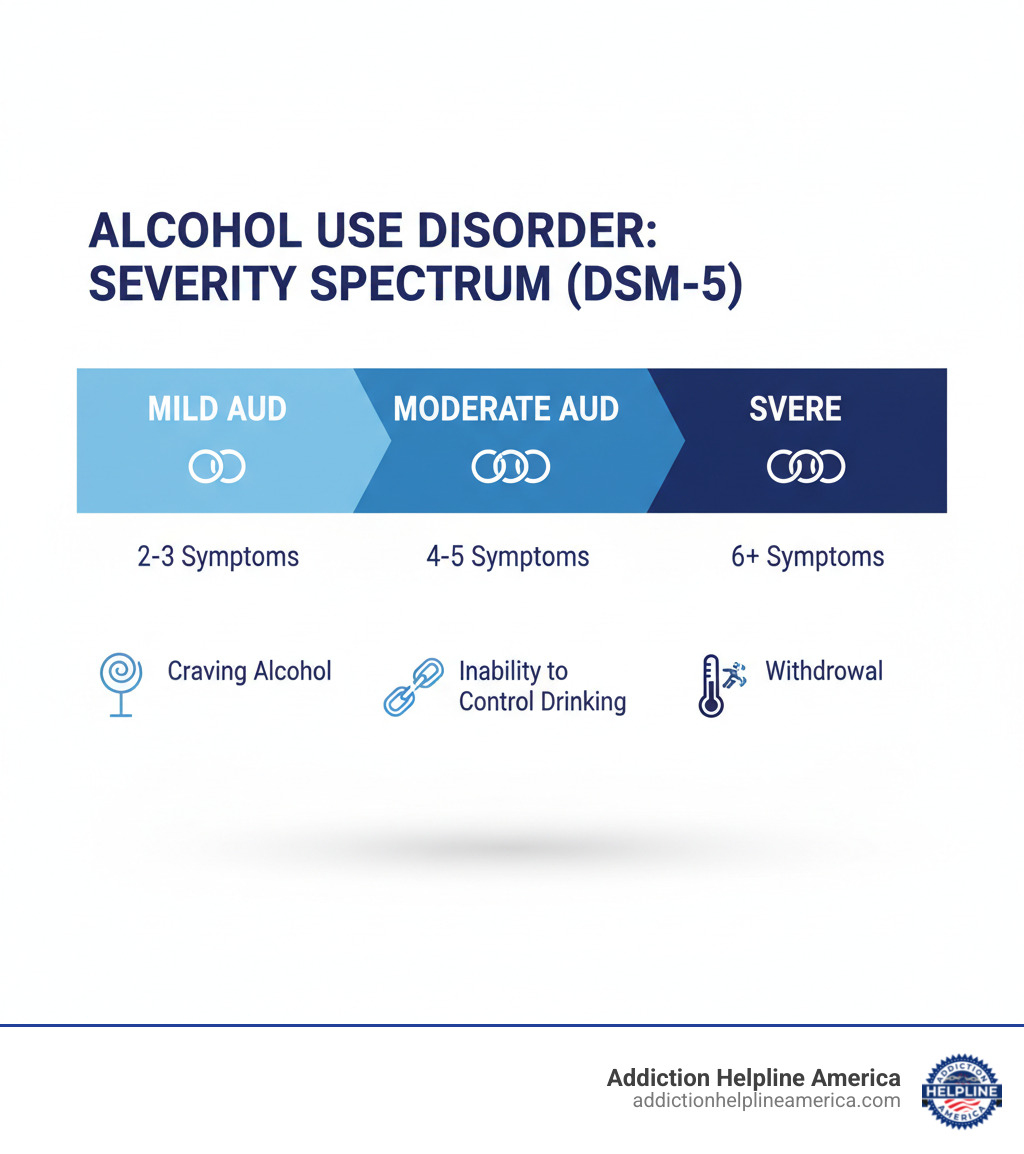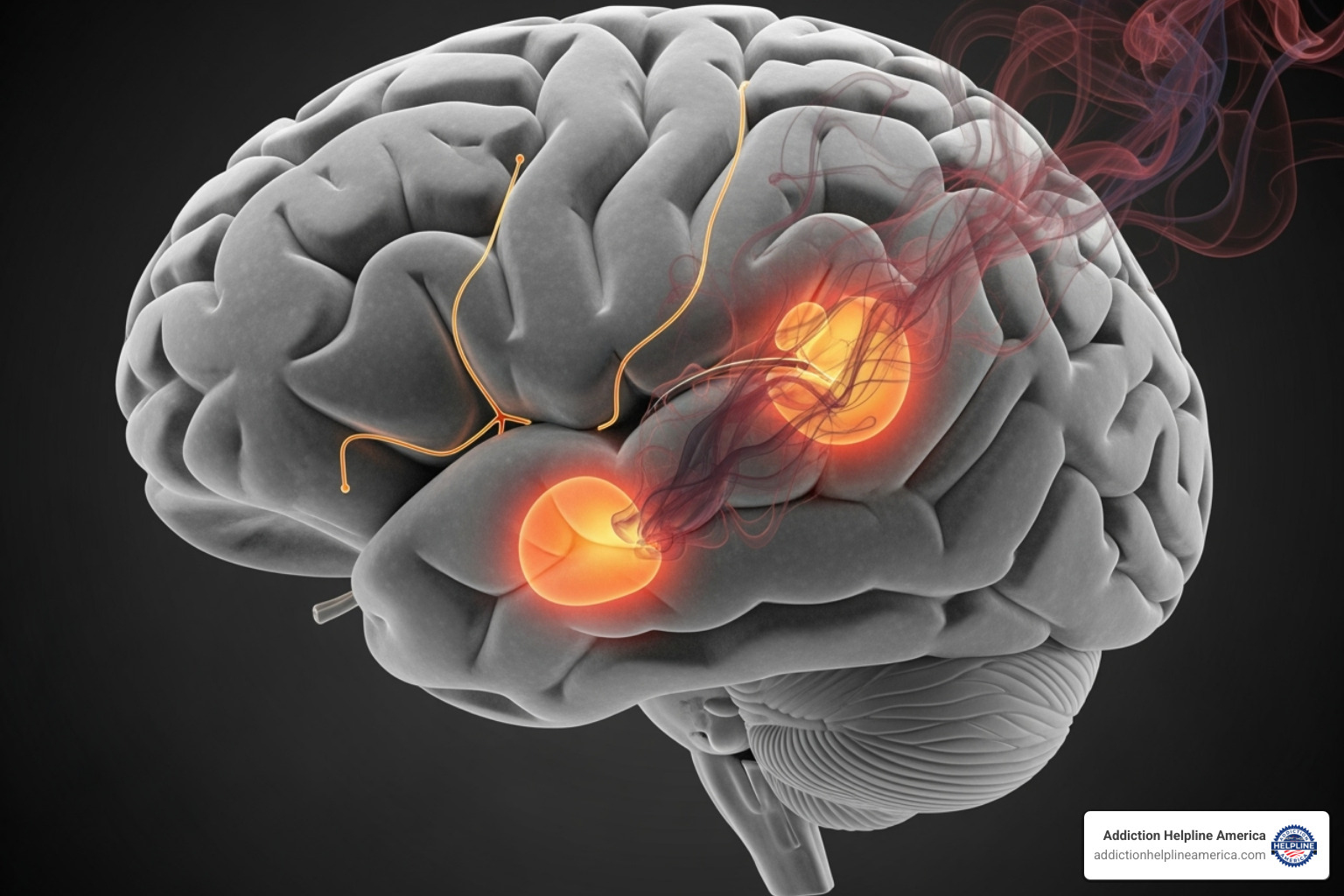
Why Alcohol Abuse Treatment Can Change Your Life
Alcohol abuse treatment offers hope and a path to recovery for millions of Americans. If you’re seeking help, it’s important to know the main options available.
Core Treatment Components:
- Behavioral therapy: Counseling to build coping skills.
- FDA-approved medications: Naltrexone, Acamprosate, and Disulfiram.
- Support groups: Peer communities like AA or SMART Recovery.
- Medical detox: Medically supervised withdrawal management.
Four Levels of Care:
- Outpatient: Regular therapy while living at home.
- Intensive Outpatient/Partial Hospitalization: More frequent treatment sessions.
- Residential: Live-in programs for immersive care.
- Intensive Inpatient: 24/7 medical supervision for severe cases.
Alcohol Use Disorder (AUD) affects an estimated 14.5 million Americans, but most people with AUD can benefit from treatment. Modern care goes beyond stereotypes, offering telehealth, custom care teams, and evidence-based therapies. Studies show that with help, people significantly reduce drinking and related problems.
At Addiction Helpline America, we connect individuals with effective, customized alcohol abuse treatment options. Our addiction specialists provide compassionate guidance to simplify the overwhelming process of finding the right help.
Understanding Alcohol Use Disorder (AUD)
Alcohol Use Disorder is a medical condition, not a character flaw. Like diabetes or heart disease, it’s a health issue that requires proper treatment. Understanding AUD is the first step toward getting the alcohol abuse treatment you deserve.
What Are the Signs It’s Time for Treatment?
Recognizing the warning signs of a drinking problem is a life-changing wake-up call. Consider if you’ve experienced any of the following:
- Craving alcohol: A persistent urge to drink that’s hard to ignore.
- Inability to control drinking: Promising to have just one drink but ending up having many more.
- Negative consequences: Problems at work, in relationships, or with your health due to drinking.
- Increased tolerance: Needing more alcohol to get the same effect you used to.
- Withdrawal symptoms: Experiencing tremors, anxiety, or nausea when you try to stop or cut back.
- Memory blackouts: Not being able to remember what happened while you were drinking.
If these signs are familiar, consider using a A guide to self-assessment to get a clearer picture.
How is AUD Diagnosed and What Causes It?
A diagnosis by a healthcare provider is the official first step. A doctor will ask about your drinking patterns and health history to make a diagnosis based on the DSM-5 criteria. This checklist of symptoms helps determine the severity level:
- Mild AUD: 2-3 symptoms
- Moderate AUD: 4-5 symptoms
- Severe AUD: 6 or more symptoms
No matter the severity, recovery is possible. AUD is typically caused by a combination of factors:
- Genetic predisposition: A family history of alcohol problems can increase your risk.
- Environmental factors: Childhood trauma, chronic stress, or a culture of heavy drinking can play a role.
- Co-occurring mental health conditions: Many people use alcohol to cope with depression, anxiety, or PTSD, which often worsens these conditions over time.
The Impact of Alcohol Abuse on Physical and Mental Health
Heavy drinking can cause serious, long-term damage to your body and mind.
- Liver disease: Chronic drinking can lead to fatty liver, hepatitis, and irreversible cirrhosis.
- Heart problems: Alcohol abuse is linked to high blood pressure, weakened heart muscle, and increased stroke risk.
- Increased cancer risk: Alcohol is a known carcinogen, linked to cancers of the head, neck, liver, breast, and colon.
- Brain damage: Chronic use can cause cognitive decline, memory loss, and certain types of dementia.
- Worsening mental health: Alcohol often exacerbates depression and anxiety, creating a vicious cycle.
- Pancreatitis: Heavy drinkers are at a much higher risk for this painful inflammation of the pancreas.
- Weakened immune system: Alcohol abuse makes you more susceptible to illnesses.
For more details, see this resource on Information on alcohol’s effects on the body. The good news is that many of these health issues can improve significantly once you begin alcohol abuse treatment and stop drinking.
The Spectrum of Professional Alcohol Abuse Treatment
There is no one-size-fits-all alcohol abuse treatment. Modern care is a toolbox of options designed to meet your unique needs, whether you’re a working parent or someone needing intensive medical care.
The Core Components: Therapy and Medication
Effective alcohol abuse treatment combines behavioral therapy and FDA-approved medications.
Behavioral therapies (counseling) help you understand your drinking patterns and develop healthy coping strategies. Common approaches include Cognitive Behavioral Therapy (CBT), Motivational Improvement Therapy (MET), and family counseling.
FDA-approved medications are non-addictive tools that address the biological side of addiction. They can reduce cravings or block the pleasant effects of alcohol. When used with therapy in an integrated treatment approach, they address the physical, emotional, and psychological factors of alcohol misuse.
The Four Levels of Care
Professional treatment is organized into four levels of intensity:
- Outpatient programs: The most flexible option, with therapy sessions once or a few times per week while you live at home. Ideal for mild AUD and a stable support system.
- Intensive Outpatient (IOP) and Partial Hospitalization (PHP): A step up in intensity, with several hours of therapy on multiple days per week. PHP is like a full-time day program.
- Residential treatment: Living at a treatment facility 24/7, removed from daily triggers. Stays can range from weeks to months.
- Medically-managed intensive inpatient care: The highest level of support, typically in a hospital, for severe withdrawal or co-occurring medical issues.
The right level depends on your AUD severity, mental health, medical stability, and home support system.
Modern Approaches for Outpatient Care
Today’s alcohol abuse treatment is more accessible than ever thanks to technology and flexible care models.
Telehealth and eHealth options allow you to connect with therapists and doctors via video or phone from home. This is ideal for those in rural areas or with busy schedules. Digital tools like CBT programs and mobile apps provide additional support.
Building a custom care team is another modern approach. You can assemble your own team of specialists, such as a therapist, an addiction doctor for medication, and your primary care provider.
Primary care provider coordination is key to this team approach. Your doctor can screen for alcohol misuse, provide brief interventions, and refer you to specialists, ensuring your treatment is integrated with your overall healthcare.
These flexible, private, and personalized approaches make it easier to get quality treatment that fits your life. If you’re overwhelmed, we can help you find addiction specialists near you.
A Closer Look at Medications for AUD Recovery
Medication is a powerful but often overlooked tool in alcohol abuse treatment. When combined with counseling, these non-addictive medications can significantly improve your chances of recovery.
How Do Medications for Alcohol Abuse Treatment Work?
It’s a common myth that using medication for AUD is “trading one addiction for another.” The truth is, FDA-approved medications for AUD are not addictive. They work by helping to restore the brain chemistry that has been altered by long-term drinking.
These medications can help by:
- Reducing cravings: Targeting brain pathways to make the intense urge to drink more manageable.
- Offsetting brain changes: Normalizing the brain’s reward system so alcohol loses its powerful hold.
- Creating negative effects from drinking: Causing an unpleasant physical reaction to alcohol, acting as a deterrent.
These medications are support tools that help you manage a chronic medical condition, much like taking medication for high blood pressure.
Comparing FDA-Approved Medications
Three FDA-approved medications are available for AUD, each working differently. A healthcare provider can help determine the best fit for you.
- Naltrexone: A daily pill that blocks the euphoric effects of alcohol, making drinking less rewarding. It is effective at reducing heavy drinking days.
- Acamprosate: A pill taken three times a day that helps restore brain chemical balance. It is designed for people who have already stopped drinking to help prevent relapse.
- Disulfiram: A daily pill that causes a severe negative reaction (nausea, vomiting) if you consume alcohol. It acts as a strong deterrent for highly motivated individuals.
What is Injectable Naltrexone and How Does It Help?
Naltrexone is also available as a once-monthly injection (brand name VIVITROL), which eliminates the need to remember a daily pill.
The injection works the same way as the pill, blocking the euphoric effects of alcohol and making it less appealing. Studies show VIVITROL can lead to 25% fewer heavy drinking days compared to a placebo. It is best used with counseling to build skills for long-term recovery.
Important safety information about VIVITROL is critical. You must be opioid-free for 7-14 days before starting, as it blocks opioid effects, which can lead to overdose if you try to override the blockade. Common side effects include injection site reactions (pain, swelling). More serious reactions, liver problems, or depression can occur. Talk to your doctor about all risks and benefits. If you experience side effects, you can report them to the FDA.
Navigating medication options can be complex. Addiction Helpline America connects you with healthcare providers specializing in alcohol abuse treatment to help you make an informed decision.
Building a Strong Support System for Lasting Recovery
Recovery from alcohol abuse is rarely a solo journey. A strong support system is a cornerstone of effective alcohol abuse treatment and long-term sobriety.
The Role of Mutual-Support Groups
Support groups offer a unique power: connecting with people who truly understand what you’re going through. This peer support breaks the isolation of addiction and provides hope through shared experience.
These groups offer free, accessible, and ongoing support. They provide accountability, community resources, and encouragement to steer life’s challenges. It’s important to find a group that fits you. Popular options include:
- Alcoholics Anonymous (AA): A 12-step program with spiritual principles.
- SMART Recovery: Uses cognitive behavioral tools for self-empowerment.
- LifeRing: Focuses on building personal recovery programs.
- Women for Sobriety: Addresses the unique challenges women face.
These groups complement professional alcohol abuse treatment by creating a daily support network.
How Friends and Family Can Help
If a loved one is struggling, it’s normal to feel a mix of emotions. You can provide meaningful help on their recovery journey.
- Offer support without enabling: Be there emotionally, but don’t shield them from the natural consequences of their drinking (e.g., making excuses for them).
- Encourage treatment: Have honest, calm conversations about your concerns. Offer to help research alcohol abuse treatment options or go to an appointment with them.
- Consider family therapy: Alcohol problems affect the whole family. Therapy can help everyone communicate better, rebuild trust, and heal together.
- Set healthy boundaries: Protect your own well-being by setting limits, such as not engaging in arguments when they are drinking. Boundaries are for your protection, not punishment.
- Practice self-care: Supporting someone in recovery is exhausting. Consider your own counseling or support groups like Al-Anon. Taking care of yourself is essential.
Your loving support, combined with healthy boundaries, can be a powerful motivator for them to seek the help they need.
Navigating Your Path to Recovery
Starting the journey to recovery from Alcohol Use Disorder takes courage. With the right guidance, you can find your way to a healthier life.
How to Select the Right Treatment Program
Finding the right alcohol abuse treatment program can feel overwhelming. Asking these key questions can help you find a good fit:
- What treatments are offered? Look for programs that provide both behavioral therapy (like CBT) and medication management.
- Are treatment plans individualized? A one-size-fits-all approach is ineffective. The program should tailor care to your unique needs and circumstances.
- What are the staff’s qualifications? Ensure therapists are licensed and that medical doctors are available to manage medications.
- How is success measured? Quality programs track their outcomes and have clear strategies for managing setbacks.
- What are the costs? Understand what your insurance covers and what out-of-pocket expenses to expect.
At Addiction Helpline America, we help you steer these questions, matching you with programs that fit your clinical and financial needs.
The Importance of Persistence and Managing Setbacks
Recovery is a long-term process, not a quick fix. Like other chronic conditions, AUD requires ongoing management. Setbacks are often part of the journey, with studies showing many people experience a return to drinking during recovery.
However, a setback is not a failure; it’s valuable information. It helps you and your treatment team identify triggers and strengthen your coping strategies. It’s normal to adjust your treatment plan over time by trying a new therapy, changing medication, or increasing support. Building robust coping strategies takes practice. Every day you choose recovery is a victory.
Preventing Alcohol Use Disorder
While treatment is life-changing, prevention is also a powerful tool. Understanding healthy limits can prevent AUD from developing.
Guidelines for low-risk drinking are no more than two drinks a day for men (14/week) and one for women (7/week). Exceeding these limits regularly increases your risk.
Early intervention is key. If you notice your drinking patterns are becoming problematic, talk to a healthcare provider. Many primary care doctors now routinely screen for alcohol misuse as part of preventive care. This isn’t judgmental; it’s a health check, like screening for high blood pressure.
Education on health risks—from liver disease to cancer—is a powerful motivator for staying within safe limits. At Addiction Helpline America, we believe in providing access to both prevention resources and comprehensive alcohol abuse treatment.
Frequently Asked Questions about Alcohol Treatment
It’s natural to have questions when considering alcohol abuse treatment. Here are answers to some of the most common concerns.
Is there a cure for alcohol use disorder?
There is no “cure” for AUD in the way one might cure an infection. Instead, AUD is a chronic, treatable medical condition, similar to diabetes or high blood pressure. It requires ongoing management, but remission and long-term recovery are absolutely achievable.
Studies show that most people can dramatically reduce their drinking or stop entirely with proper help. Effective long-term management through therapy, medication, and support groups allows millions to live full, sober lives.
Isn’t taking medication just trading one addiction for another?
This is a common and understandable fear, but it’s a myth. FDA-approved medications for AUD are not addictive. They do not create dependency or produce a “high.”
These medications work by normalizing brain chemistry that has been disrupted by alcohol. They act as support tools, not substitutes, reducing cravings and making it easier to engage in therapy. Using medication for AUD is not trading addictions; it’s using medical science to give yourself the best chance at recovery.
How can I find quality alcohol treatment?
Finding the right alcohol abuse treatment can be challenging, but there are clear steps you can take.
- Start with your primary care provider. They can evaluate your drinking, discuss options, and provide referrals to specialists.
- Look for evidence-based practices. Ensure the program uses treatments that are proven effective by scientific research.
- Use trusted online resources. The NIAAA Alcohol Treatment Navigator® is a great tool for finding qualified providers.
- Consider the right level of care. Decide if you need flexible outpatient care or a more immersive residential program based on your specific needs.
At Addiction Helpline America, we simplify this process. We offer free, confidential guidance to connect you with quality treatment programs from our network that fit your unique situation. Finding the right fit is crucial, and you deserve to find it.
Take the First Step Towards a New Beginning
Taking the first step toward alcohol abuse treatment takes courage. It’s normal to feel overwhelmed, but you don’t have to do it alone.
Recovery is a journey of progress, not perfection. There are many paths to a healthier, happier life, and most people with alcohol problems can benefit from some form of treatment. Professional help provides what you can’t get on your own: medical expertise, evidence-based therapies, and a team that understands what you’re going through.
At Addiction Helpline America, we’ve guided thousands of people through this process. We offer free, confidential, and personalized guidance to help you find what works for you. No judgment, no pressure—just an honest conversation.
Your future can be different from your past. A life free from the grip of alcohol is possible. Millions have found recovery, and you can too.
You are not alone. Today could be the day that changes everything.
Our helpline is 100%
free & confidential
If you or someone you care about is struggling with drug or alcohol addiction, we can help you explore your recovery options. Don’t face this challenge alone—seek support from us.
Programs
Resources
Will my insurance
cover addiction
treatment?
We're ready to help
Find the best
drug or alcohol treatment
center
Are you or a loved one struggling with addiction? Call today to speak to a treatment expert.
















